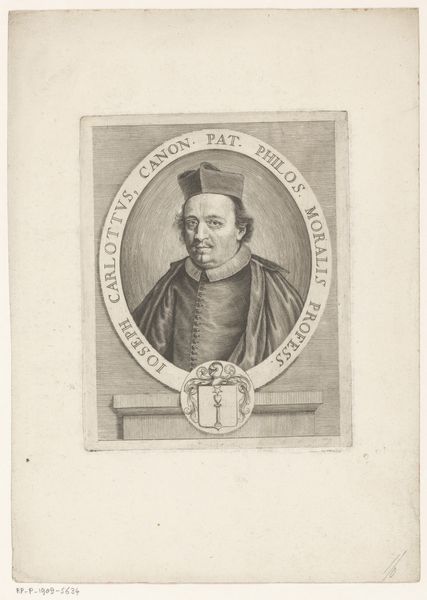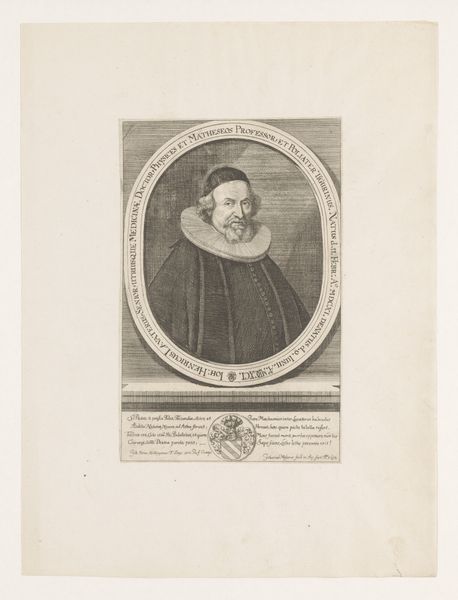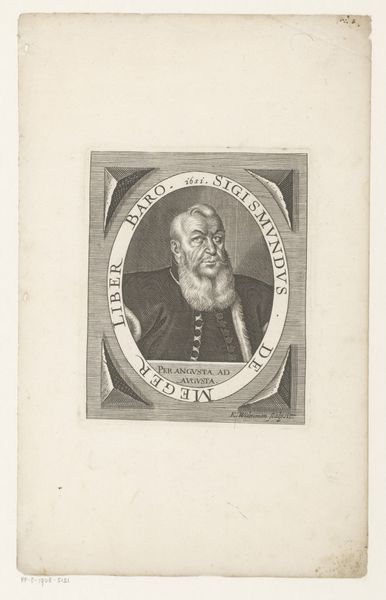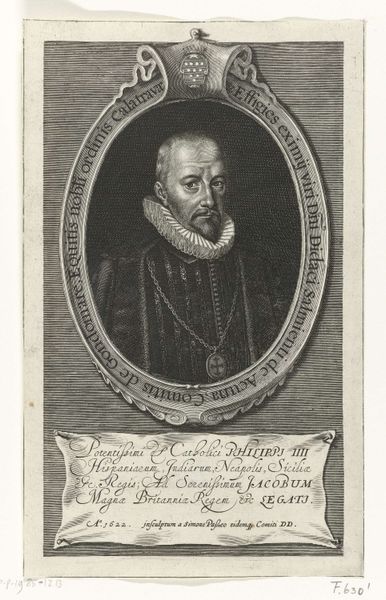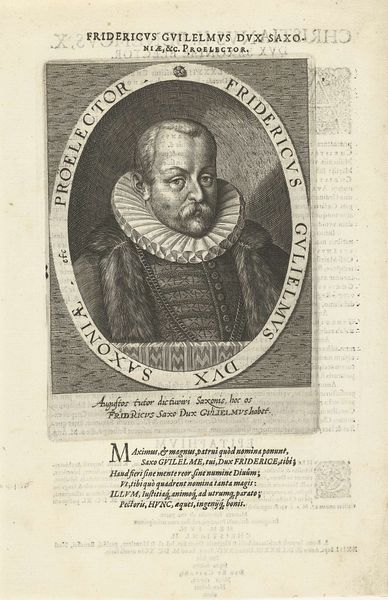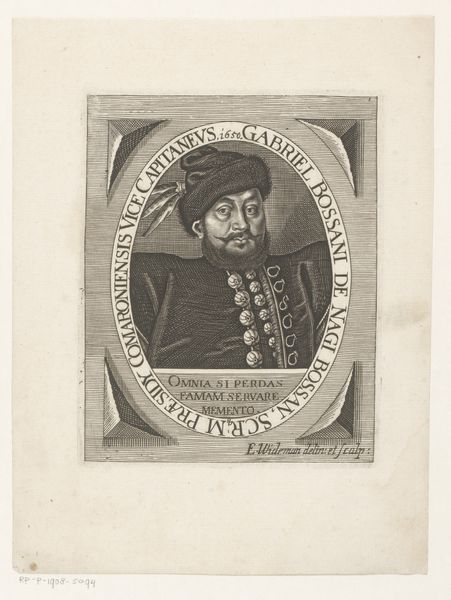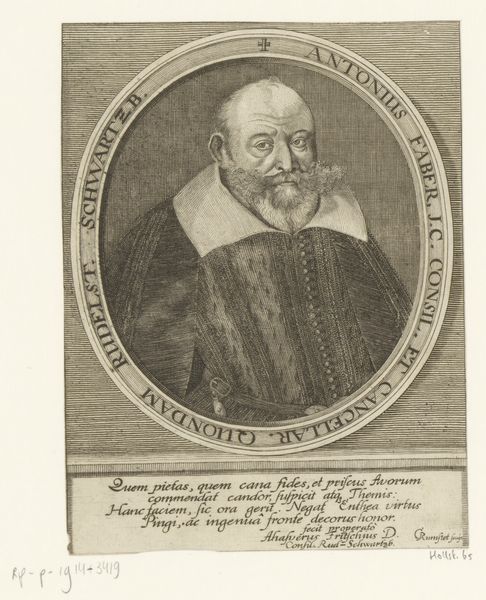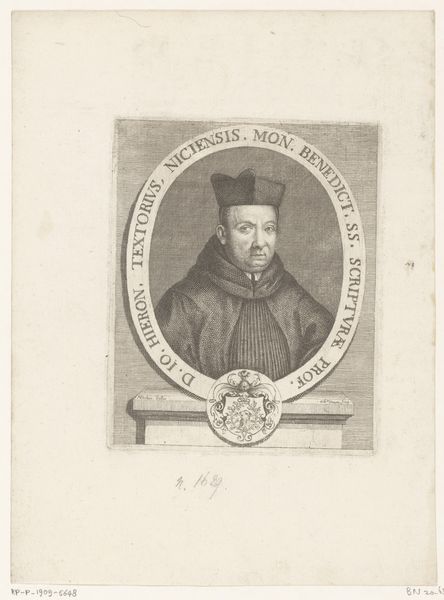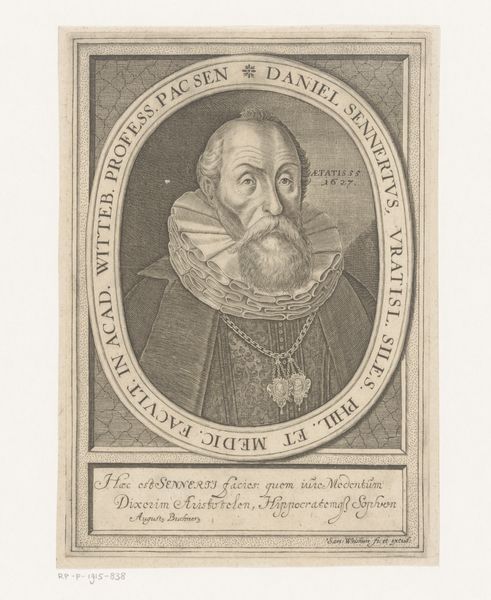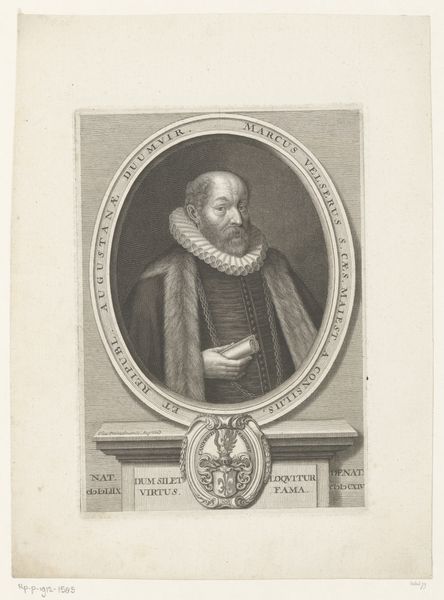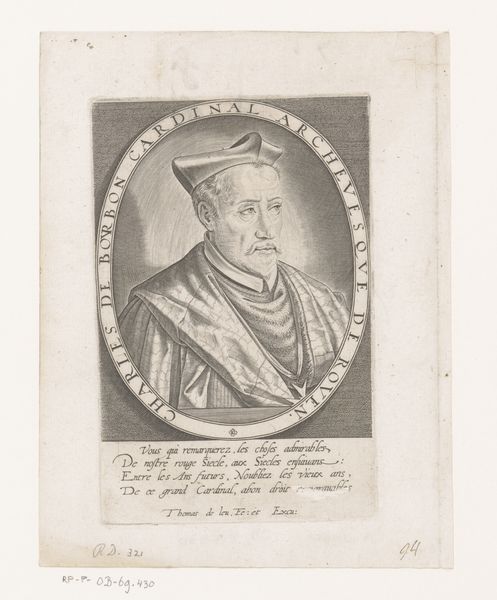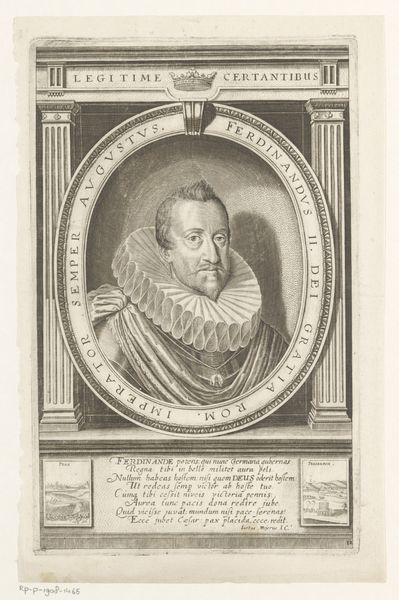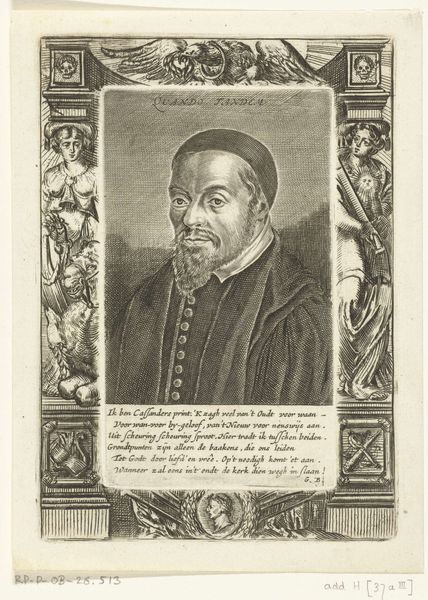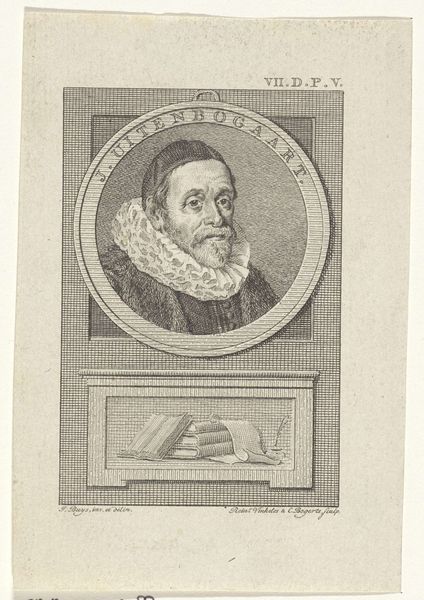
print, engraving
#
portrait
#
baroque
# print
#
old engraving style
#
engraving
Dimensions: height 147 mm, width 120 mm
Copyright: Rijks Museum: Open Domain
Editor: This is Elias Widemann’s "Portret van Stephanus de Chiak," created around 1650. It's an engraving, so a print. I'm struck by how formal and almost severe the portrait feels. The man's gaze is quite intense, and the framing adds to that seriousness. What do you see in this piece? Curator: Beyond the sitter's gaze, consider the deliberate choice of symbols and Latin inscriptions. These weren't merely decorative. Look at the framing device itself, the oval, almost a mirror, reflecting status and authority. The inscription acts as a frame, binding the image to its meaning. Inscriptions function much like talismans, ensuring the memory and attributes of Stephanus endure. It seems calculated to reinforce societal roles. Does it give you any particular emotional impression? Editor: Yes, I get the sense of enduring legacy, the kind a person wants to carefully curate for themselves. It’s not just a likeness but an advertisement of importance. The frame makes it official somehow, not something personal or candid. Curator: Precisely. The portrait exists not just as an image of Stephanus, but as a lasting symbol *of* Stephanus. It suggests an enduring memory. A potent visual mnemonic that reinforces the subject's intended image, not only of importance, but also how one would like to be remembered, regardless of who the sitter was in private. The text elevates and separates, while simultaneously commemorating his life and achievements. It suggests not merely remembrance, but a very specific and intentional *kind* of remembrance. Editor: I hadn’t considered that degree of intentionality. Now that you point it out, the framing and inscription together really underscore the carefully constructed nature of this portrait as a symbol. Thanks! Curator: My pleasure.
Comments
No comments
Be the first to comment and join the conversation on the ultimate creative platform.
